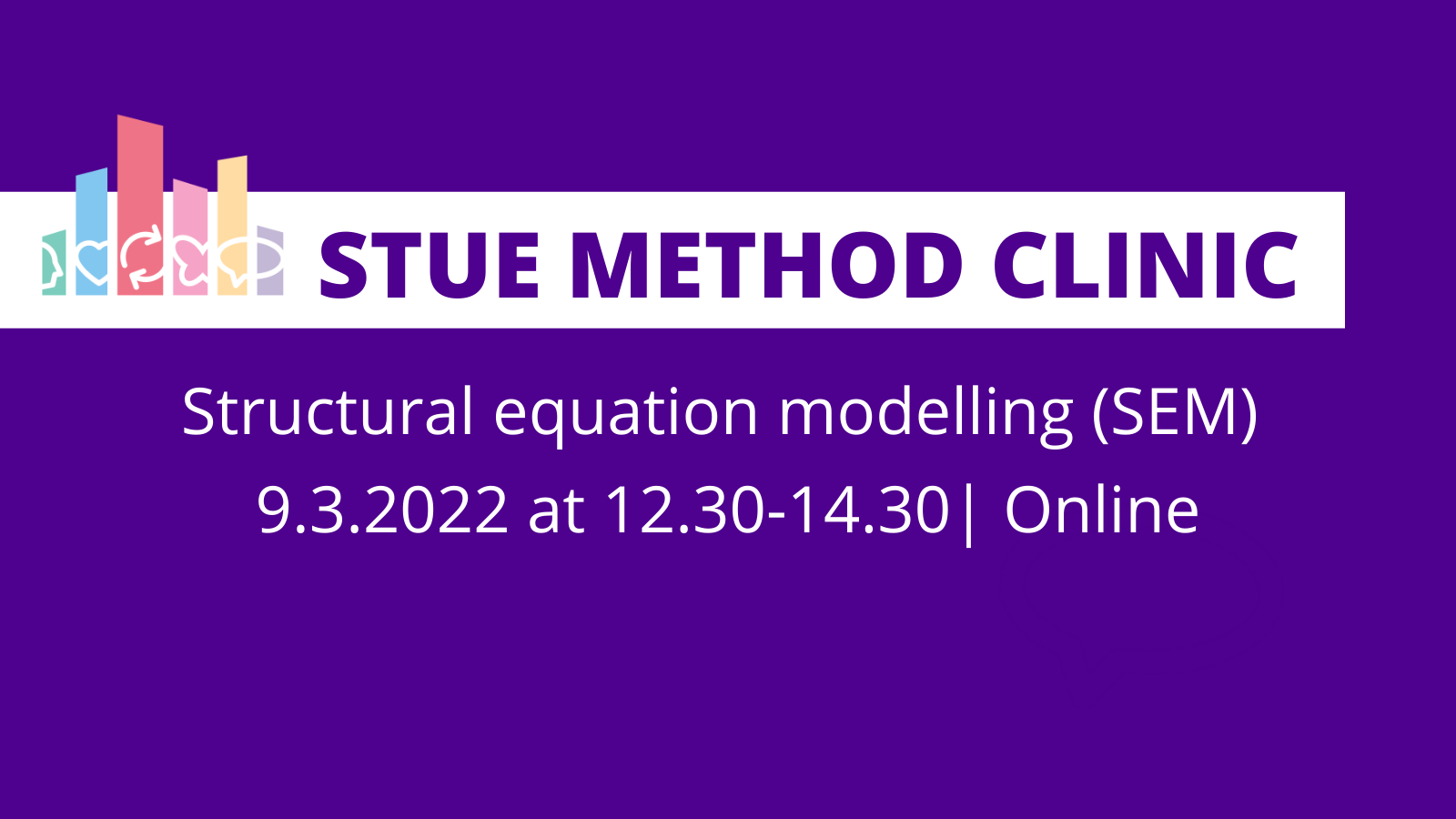All interested are welcome to join. There is no need for prior knowledge of latent variable modelling but some experience in using quantitative research methods is an advantage.
Sign up here by 7.3.2022 at 14.00
Structural equation modelling (SEM) refers to a wide range of methods for assessing complex relationship between different types of variables and constructs. Traditionally, it has been applied especially in psychological research, but the potential advantages have been recognised in many other scientific fields. This general introduction will discuss the advantages of SEM over more traditional statistical research methods such as linear regression analysis, and the requirements for and typical issues when conducting SEM. Several examples from people-environment studies will be presented.
This workshop will be held online by Dr. Tytti Pasanen, a post-doctoral research fellow at Tampere University / STUE. SEM was the topic in her award-winning Master’s thesis in 2012, and she has applied versatile SEM techniques in her doctoral and post-doctoral research examining exposure to natural environments and mental well-being.
STUE method clinics
STUE arranges a series of method clinics in Spring 2022. The aim is to discuss different research methods, share experiences, learn together, and build up skills for co-operation across disciplines. Subscribe to our e-mail list to receive the latest information.
More information:
Research coordinator Alisa Vänttinen, alisa.vanttinen@tuni.fi


